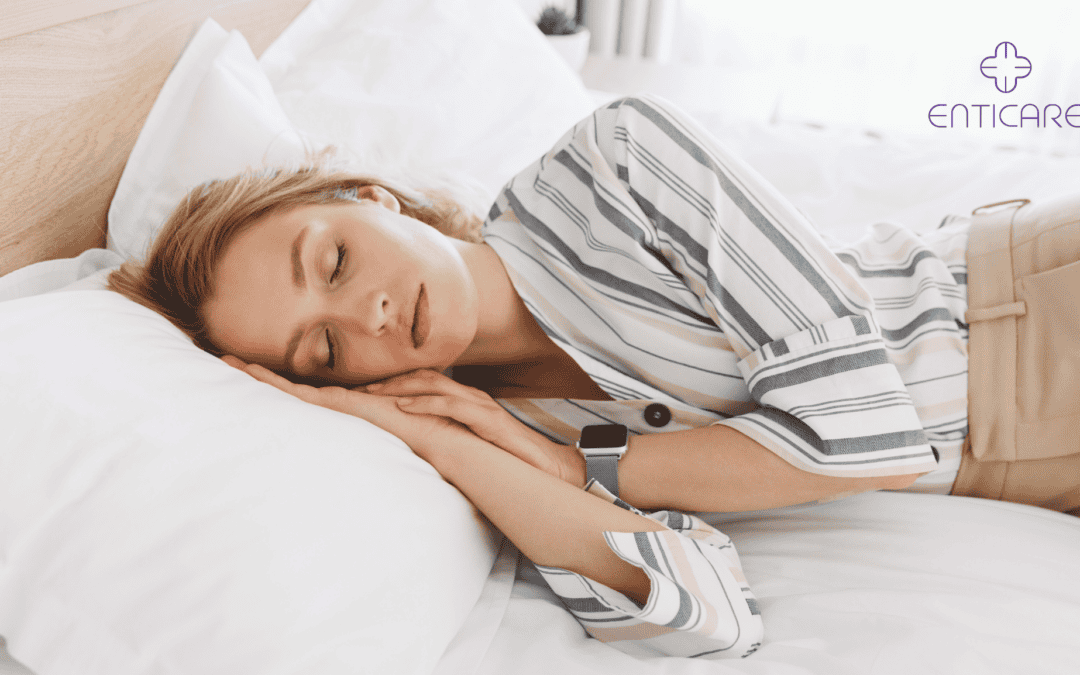Sleep apnea treatment often involves using a CPAP (Continuous Positive Airway Pressure) machine to maintain open airways during sleep. Many patients ask if they should wear their CPAP mask for short naps. This blog will explore why it’s essential to use your CPAP treatment even during daytime naps, how to manage your CPAP therapy effectively, and tips for maintaining optimal health.
Understanding the Importance of CPAP Therapy
The Role of CPAP in Treating Obstructive Sleep Apnea
CPAP therapy is designed to keep your airway open while you sleep, preventing interruptions caused by sleep apnea. For individuals with obstructive sleep apnea, maintaining effective nighttime rest is crucial for overall health. Even short naps can trigger apneas if you don’t use your CPAP, which could disrupt your sleep quality and overall health.
- Continuous Support: CPAP provides continuous air pressure to keep your airways open, reducing the risk of apneas or hypopneas (shallow breathing) during sleep. This support is crucial for maintaining consistent oxygen levels and preventing sleep disturbances.
- Long-term Health Benefits: Consistent use of CPAP helps prevent complications related to untreated sleep apnea, such as high blood pressure, heart disease, and stroke. Even a single nap without CPAP could potentially negate some of these benefits.
- Sleep Quality: Regular CPAP use improves overall sleep quality, ensuring you reach restorative sleep stages. Missing CPAP during naps could lead to fragmented sleep and impact how refreshed you feel.
The Impact of Short Naps on Sleep Apnea
Even short naps can affect your sleep apnea treatment. Both an afternoon power nap and a daytime nap can expose a person to the effects of sleep apnea, unless CPAP is worn for the duration of the nap. Understanding the impact can help you make informed decisions about using your CPAP machine.
- Potential for Apneas: Short naps might not seem significant, but they can still result in sleep apnea episodes if the airway becomes obstructed. Consistent CPAP use minimizes this risk.
- Interrupted Sleep Patterns: Naps without CPAP can lead to irregular sleep patterns, making it harder to get back on track with your nightly CPAP routine. Maintaining consistent therapy helps stabilize your sleep patterns.
- Reduced Therapy Effectiveness: Skipping CPAP during naps could reduce the overall effectiveness of your therapy, making it harder to manage your sleep apnea in the long run.
Managing CPAP Use During Daytime Naps
Effective management of your CPAP therapy involves understanding how to incorporate it into all aspects of your sleep, including naps. Embrace CPAP consistently to manage sleep apnea effectively and help you fall asleep more easily at night.
- Portability of modern CPAP Devices: Many modern CPAP machines are compact and portable, making it easier to use them during naps or while traveling. Look for options designed with portability in mind.
- Setting Up for Naps: Ensure your CPAP machine is set up correctly for naps. Adjust the mask and humidity settings as needed to accommodate shorter sleep periods while maintaining effectiveness.
- Comfort and Fit: Make sure your CPAP mask is comfortable and fits well. Proper adjustment can make using your CPAP during naps more manageable and less intrusive.
Tips for Consistent CPAP Use
Establish a Routine
Creating a routine for using your CPAP can help ensure you maintain consistent use, even during naps. Daytime sleepiness is a common symptom of sleep disorders, and using your CPAP consistently can help manage this issue.
- Regular Schedule: Try to use your CPAP at the same times each day, including during naps. Establishing a routine helps reinforce the habit and ensures you receive the therapy you need.
- Pre-Nap Preparation: Before taking a nap, set up your CPAP machine and mask as you would for nighttime use. This preparation ensures you’re ready for a restful and uninterrupted nap.
- Consistent Therapy: Avoid skipping CPAP use during naps to maintain the benefits of your therapy. Consistency is key to managing sleep apnea effectively.
Addressing Common Challenges for Quality Sleep
Many patients face challenges when using their CPAP during naps. Addressing these issues can improve your overall experience. Oral appliance therapy is an effective alternative treatment for sleep apnea and sleep-disordered breathing, enhancing patients’ quality of life.
- Comfort Issues: If you find the CPAP mask uncomfortable during naps, try different mask types or adjustments to improve comfort. Consult with your healthcare provider for recommendations.
- Machine Noise: Some CPAP machines can be noisy, which might disturb your rest. Look for quieter models or use white noise machines to mask any sounds.
- Travel Considerations: When traveling, ensure you have the necessary equipment and adapters to use your CPAP effectively. Portable CPAP machines can make this process easier.
Consulting with Your Healthcare Provider
Regular consultations with your healthcare provider are essential for managing your CPAP therapy effectively. Identifying and addressing any sleep disorder, such as sleep apnea or narcolepsy, is crucial during these consultations.
- Adjustments and Recommendations: Your provider can offer guidance on adjusting your CPAP settings for optimal comfort and effectiveness. They can also recommend solutions for any challenges you face.
- Monitoring Progress: Regular check-ins allow your provider to monitor your progress and make necessary adjustments to your therapy. This proactive approach helps ensure you receive the full benefits of CPAP.
- Addressing Concerns: If you have concerns about using CPAP during naps or experience issues with your therapy, your provider can provide support and address any questions you have.
Conclusion
Using your CPAP machine for naps is essential for effective sleep apnea management. It helps maintain consistent airway support, prevents disruptions in sleep quality, and contributes to long-term health benefits. If you have questions or need assistance with your CPAP therapy, don’t hesitate to schedule an appointment with our experts at Enticare. We’re here to support you in achieving better sleep and overall well-being.

